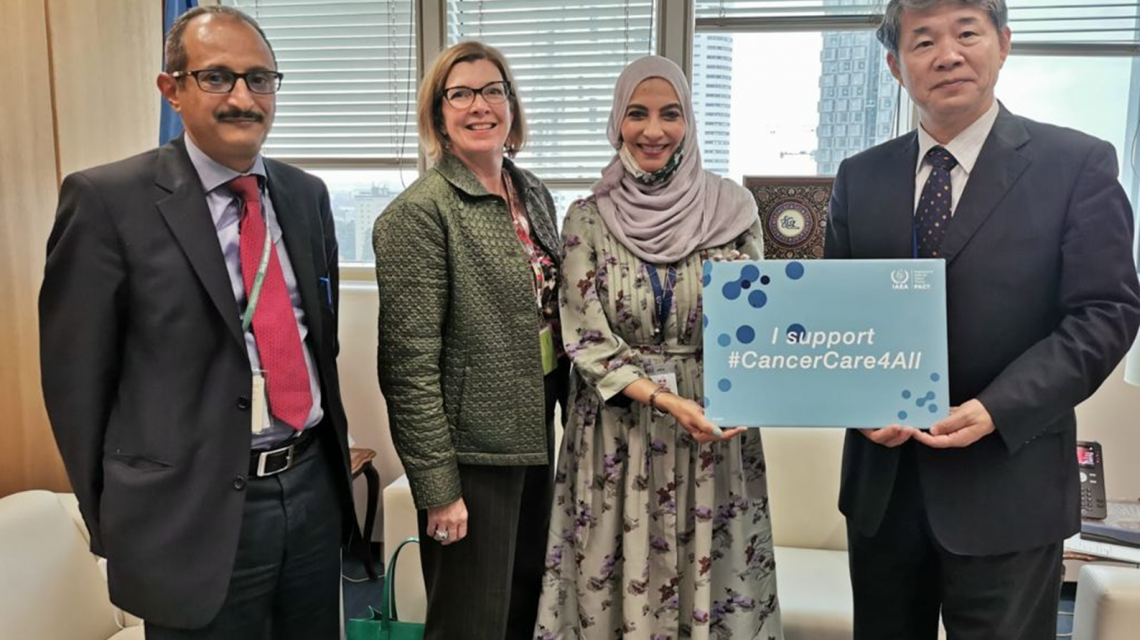Building on their successful collaboration to improve cancer control and expand women’s access to effective, safe and sustainable cancer prevention, diagnostics and treatment services, the Islamic Development Bank (IsDB) and the IAEA are exploring ways to grow their partnership. At a meeting on the margins of the 65th IAEA General Conference last month, Hayat Sindi, Senior Advisor in Science, Technology and Innovation for the President of the IsDB and Director General Rafael Mariano Grossi assessed the status of projects carried out together, and discussed steps to enhance the partnership and identify new areas of collaboration.
Collaboration between the IAEA and the IsDB received a major boost in September 2019 when the two organizations signed the Women’s Cancers Partnership Initiative for Breast and Cervical Cancer Control in Low and Middle Income Countries to improve the quality of life of women with cancer by providing high-quality healthcare. Under this agreement, the IAEA, IsDB and other partners are working to increase access to cancer services for women in low and middle income countries, by expanding programmes to address breast and cervical cancer. This includes upgrading cancer facilities with equipment, providing training and education, and integrating the use of nuclear and radiation medicine into national cancer control programmes.
The Partnership Initiative has led to joint outreach efforts to engage current and potential partners, to raise awareness of the benefits of joining the partnership, and to sensitize decision makers on the need to tackle women’s cancers in low and middle income countries. The IAEA and IsBD are exploring other potential avenues of cooperation, such as the IAEA Zoonotic Disease Integrated Action (ZODIAC), an initiative that aims to build capacity in Member States in the use of nuclear and related techniques for detection of zoonotic diseases; and NUclear TEChnology for Controlling Plastic Pollution (NUTEC Plastics), an initiative to address plastic pollution that leverages the IAEA’s experience in marine monitoring using isotopic tracing techniques and potential applications of nuclear technology in plastic recycling.








